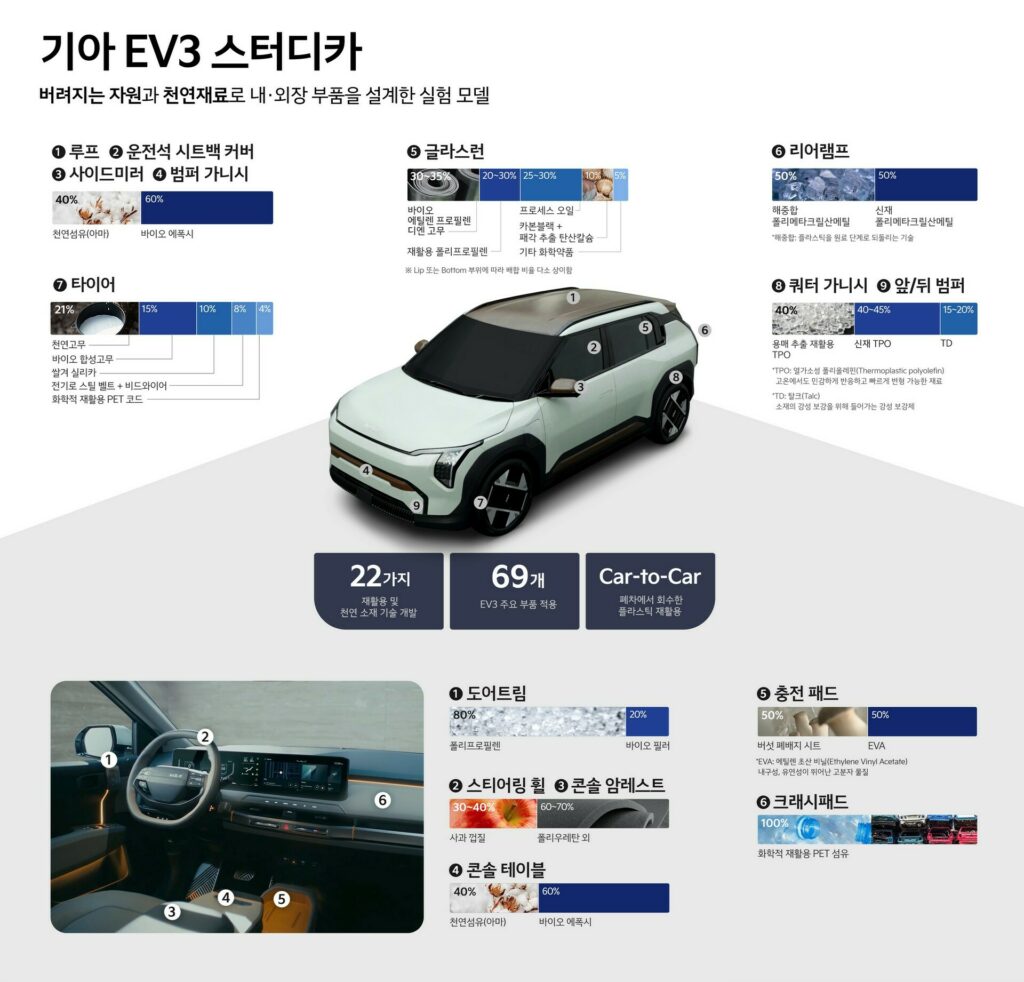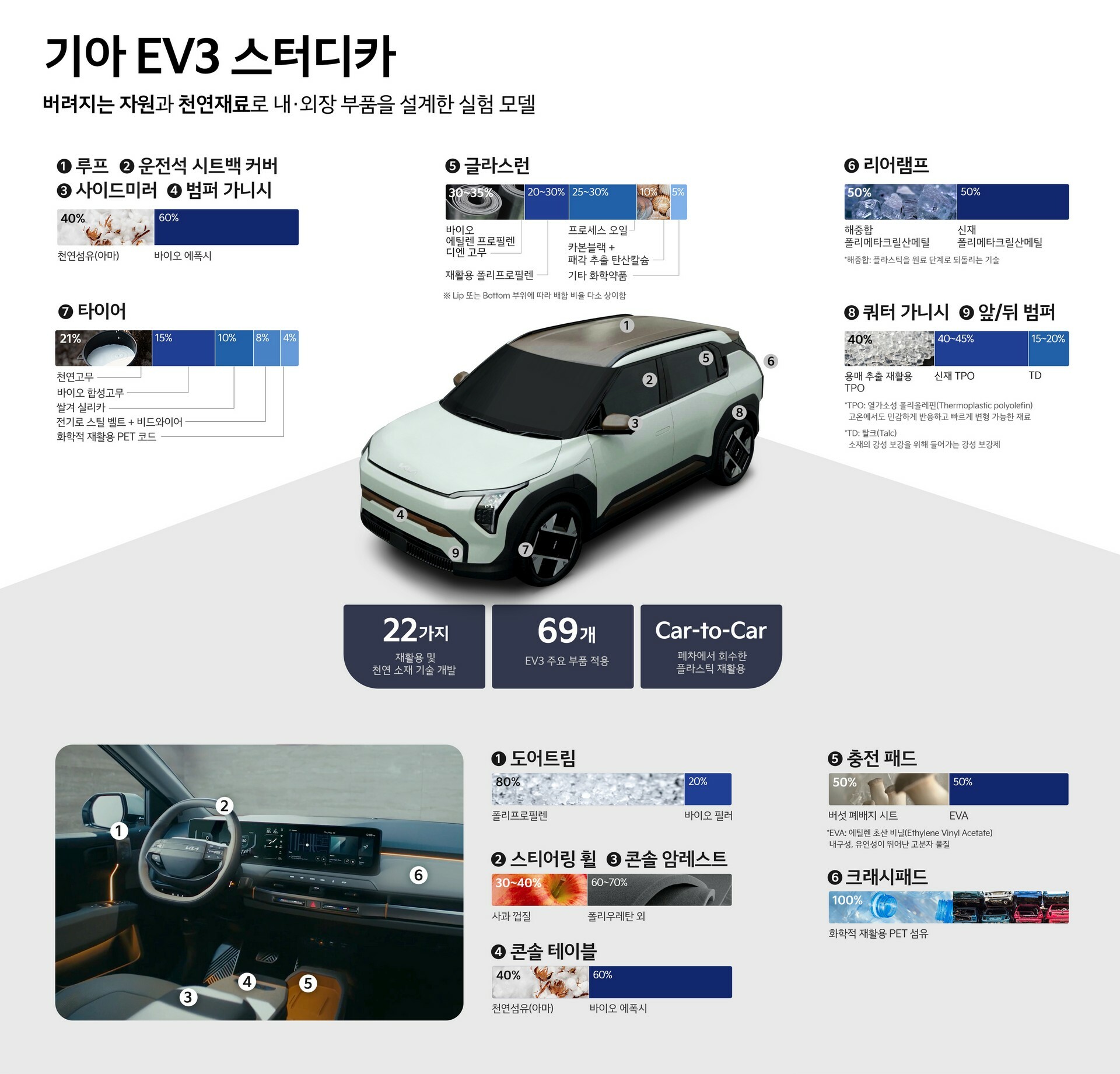- Kia has introduced an eco-friendly concept of its new EV3 crossover in South Korea.
- It uses a combination of recycled plastics as well as components made from natural materials.
- Among other features, the steering wheel is wrapped in a leather-like material made from apples.
Kia has quietly introduced a new EV3 concept known as the Study Car. It’s billed as a “vision for the next generation of eco-friendly vehicles.”
While electric vehicles are green by design, the study goes a step further as it incorporates natural and recycled materials inside and out. In total, the company used “22 recycling and natural material technologies” to replace 69 parts on the EV3.
More: Kia EV3 Introduced As An Affordable EV With EV9-Like Looks
Starting outside, plastic recovered from scrapped vehicles was used to make the concept’s bumpers and liftgate. They’re joined by a composite material that uses natural fibers as well as biopolymers derived from nature. This is used on the roof, rear spoiler, and mirror caps.
The eco-friendly upgrades continue inside with the use of “non-edible natural materials.” While that may sound a bit odd, the center console and steering wheel are wrapped in Apple Skin. It’s a leather-like material that is made by pulverizing apple waste from the food industry.

If apples aren’t your thing, the wireless smartphone charger is wrapped in mushroom waste-based leather. This isn’t a new idea, as Cadillac used Fine Mycelium on the charging mats and the door pockets of the Sollei concept.
Getting back to the EV3, there’s eco-friendly door trim and a dashboard that uses recycled plastic from things such as water bottles. Rounding out the highlights are special windows and taillights as well as tires that use natural rubber.
The Study Car was recently shown at the Namyang Research Center during the Eco-Friendly Materials and Vehicle Exhibition. Kia credited an unnamed official as saying, “The EV3 study car is the result of our responsible research toward sustainable resource circulation. We will continue to expand and develop low-carbon and recycled material technologies to secure the eco-friendliness of key vehicle materials.”










